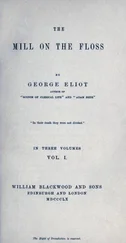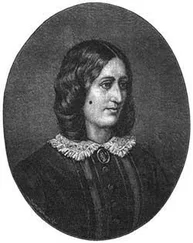Джордж Элиот - Scenes of Clerical Life
Здесь есть возможность читать онлайн «Джордж Элиот - Scenes of Clerical Life» — ознакомительный отрывок электронной книги совершенно бесплатно, а после прочтения отрывка купить полную версию. В некоторых случаях можно слушать аудио, скачать через торрент в формате fb2 и присутствует краткое содержание. Жанр: foreign_antique, Религиозная литература, foreign_religion, на английском языке. Описание произведения, (предисловие) а так же отзывы посетителей доступны на портале библиотеки ЛибКат.
- Название:Scenes of Clerical Life
- Автор:
- Жанр:
- Год:неизвестен
- ISBN:нет данных
- Рейтинг книги:5 / 5. Голосов: 1
-
Избранное:Добавить в избранное
- Отзывы:
-
Ваша оценка:
- 100
- 1
- 2
- 3
- 4
- 5
Scenes of Clerical Life: краткое содержание, описание и аннотация
Предлагаем к чтению аннотацию, описание, краткое содержание или предисловие (зависит от того, что написал сам автор книги «Scenes of Clerical Life»). Если вы не нашли необходимую информацию о книге — напишите в комментариях, мы постараемся отыскать её.
Scenes of Clerical Life — читать онлайн ознакомительный отрывок
Ниже представлен текст книги, разбитый по страницам. Система сохранения места последней прочитанной страницы, позволяет с удобством читать онлайн бесплатно книгу «Scenes of Clerical Life», без необходимости каждый раз заново искать на чём Вы остановились. Поставьте закладку, и сможете в любой момент перейти на страницу, на которой закончили чтение.
Интервал:
Закладка:
'What a hobby farming is with Lord Watling!' said Mr. Fellowes, when the cloth was being drawn. 'I went over his farm at Tetterley with him last summer. It is really a model farm; first-rate dairy, grazing and wheat land, and such splendid farm-buildings! An expensive hobby, though. He sinks a good deal of money there, I fancy. He has a great whim for black cattle, and he sends that drunken old Scotch bailiff of his to Scotland every year, with hundreds in his pocket, to buy these beasts.'
'By the by,' said Mr. Ely, 'do you know who is the man to whom Lord
Watling has given the Bramhill living?'
'A man named Sargent. I knew him at Oxford. His brother is a lawyer, and was very useful to Lord Watling in that ugly Brounsell affair. That's why Sargent got the living.'
'Sargent,' said Mr. Ely. 'I know him. Isn't he a showy, talkative fellow; has written travels in Mesopotamia, or something of that sort?'
'That's the man.'
'He was at Witherington once, as Bagshawe's curate. He got into rather bad odour there, through some scandal about a flirtation, I think.'
'Talking of scandal,' returned Mr. Fellowes, 'have you heard the last story about Barton? Nisbett was telling me the other day that he dines alone with the Countess at six, while Mrs. Barton is in the kitchen acting as cook.'
'Rather an apocryphal authority, Nisbett,' said Mr. Ely.
'Ah,' said Mr. Cleves, with good-natured humour twinkling in his eyes, 'depend upon it, that is a corrupt version. The original text is, that they all dined together with six—meaning six children—and that Mrs. Barton is an excellent cook.'
'I wish dining alone together may be the worst of that sad business,' said the Rev. Archibald Duke, in a tone implying that his wish was a strong figure of speech.
'Well,' said Mr. Fellowes, filling his glass and looking jocose, 'Barton is certain either the greatest gull in existence, or he has some cunning secret,—some philtre or other to make himself charming in the eyes of a fair lady. It isn't all of us that can make conquests when our ugliness is past its bloom.'
'The lady seemed to have made a conquest of him at the very outset,' said Mr. Ely. 'I was immensely amused one night at Granby's when he was telling us her story about her husband's adventures. He said, "When she told me the tale, I felt I don't know how,—I felt it from the crown of my head to the sole of my feet."'
Mr. Ely gave these words dramatically, imitating the Rev. Amos's fervour and symbolic action, and every one laughed except Mr. Duke, whose after-dinner view of things was not apt to be jovial. He said,—'I think some of us ought to remonstrate with Mr. Barton on the scandal he is causing. He is not only imperilling his own soul, but the souls of his flock.'
'Depend upon it,' said Mr. Cleves, 'there is some simple explanation of the whole affair, if we only happened to know it. Barton has always impressed me as a right-minded man, who has the knack of doing himself injustice by his manner.'
'Now I never liked Barton,' said Mr. Fellowes. 'He's not a gentleman. Why, he used to be on terms of intimacy with that canting Prior, who died a little while ago;—a fellow who soaked himself with spirits, and talked of the Gospel through an inflamed nose.'
'The Countess has given him more refined tastes, I daresay,' said Mr.
Ely.
'Well,' observed Mr. Cleves, 'the poor fellow must have a hard pull to get along, with his small income and large family. Let us hope the Countess does something towards making the pot boil.'
'Not she,' said Mr. Duke; 'there are greater signs of poverty about them than ever.'
'Well, come,' returned Mr. Cleves, who could be caustic sometimes, and who was not at all fond of his reverend brother, Mr. Duke, 'that's something in Barton's favour at all events. He might be poor without showing signs of poverty.'
Mr. Duke turned rather yellow, which was his way of blushing, and Mr. Ely came to his relief by observing,—'They're making a very good piece of work of Shepperton Church. Dolby, the architect, who has it in hand, is a very clever fellow.'
'It's he who has been doing Coppleton Church,' said Mr. Furness. 'They've got it in excellent order for the visitation.'
This mention of the visitation suggested the Bishop, and thus opened a wide duct, which entirely diverted the stream of animadversion from that small pipe—that capillary vessel, the Rev. Amos Barton.
The talk of the clergy about their Bishop belongs to the esoteric part of their profession; so we will at once quit the dining-room at Milby Vicarage, lest we should happen to overhear remarks unsuited to the lay understanding, and perhaps dangerous to our repose of mind.
Chapter 7
I dare say the long residence of the Countess Czerlaski at Shepperton Vicarage is very puzzling to you also, dear reader, as well as to Mr. Barton's clerical brethren; the more so, as I hope you are not in the least inclined to put that very evil interpretation on it which evidently found acceptance with the sallow and dyspeptic Mr. Duke, and with the florid and highly peptic Mr. Fellowes. You have seen enough, I trust, of the Rev. Amos Barton, to be convinced that he was more apt to fall into a blunder than into a sin—more apt to be deceived than to incur a necessity for being deceitful: and if you have a keen eye for physiognomy, you will have detected that the Countess Czerlaski loved herself far too well to get entangled in an unprofitable vice.
How then, you will say, could this fine lady choose to quarter herself on the establishment of a poor curate, where the carpets were probably falling into holes, where the attendance was limited to a maid of all work, and where six children were running loose from eight o'clock in the morning till eight o'clock in the evening? Surely you must be misrepresenting the facts.
Heaven forbid! For not having a lofty imagination, as you perceive, and being unable to invent thrilling incidents for your amusement, my only merit must lie in the truth with which I represent to you the humble experience of an ordinary fellow-mortal. I wish to stir your sympathy with commonplace troubles—to win your tears for real sorrow: sorrow such as may live next door to you—such as walks neither in rags nor in velvet, but in very ordinary decent apparel.
Therefore, that you may dismiss your suspicions of my veracity, I will beg you to consider, that at the time the Countess Czerlaski left Camp Villa in dudgeon, she had only twenty pounds in her pocket, being about one-third of the income she possessed independently of her brother. You will then perceive that she was in the extremely inconvenient predicament of having quarrelled, not indeed with her bread and cheese, but certainly with her chicken and tart—a predicament all the more inconvenient to her, because the habit of idleness had quite unfitted her for earning those necessary superfluities, and because, with all her fascinations, she had not secured any enthusiastic friends whose houses were open to her, and who were dying to see her. Thus she had completely checkmated herself, unless she could resolve on one unpleasant move—namely, to humble herself to her brother, and recognize his wife. This seemed quite impossible to her as long as she entertained the hope that he would make the first advances; and in this flattering hope she remained month after month at Shepperton Vicarage, gracefully overlooking the deficiencies of accommodation, and feeling that she was really behaving charmingly. 'Who indeed,' she thought to herself, 'could do otherwise, with a lovely, gentle creature like Milly? I shall really be sorry to leave the poor thing.'
So, though she lay in bed till ten, and came down to a separate breakfast at eleven, she kindly consented to dine as early as five, when a hot joint was prepared, which coldly furnished forth the children's table the next day; she considerately prevented Milly from devoting herself too closely to the children, by insisting on reading, talking, and walking with her; and she even began to embroider a cap for the next baby, which must certainly be a girl, and be named Caroline.
Читать дальшеИнтервал:
Закладка:
Похожие книги на «Scenes of Clerical Life»
Представляем Вашему вниманию похожие книги на «Scenes of Clerical Life» списком для выбора. Мы отобрали схожую по названию и смыслу литературу в надежде предоставить читателям больше вариантов отыскать новые, интересные, ещё непрочитанные произведения.
Обсуждение, отзывы о книге «Scenes of Clerical Life» и просто собственные мнения читателей. Оставьте ваши комментарии, напишите, что Вы думаете о произведении, его смысле или главных героях. Укажите что конкретно понравилось, а что нет, и почему Вы так считаете.










